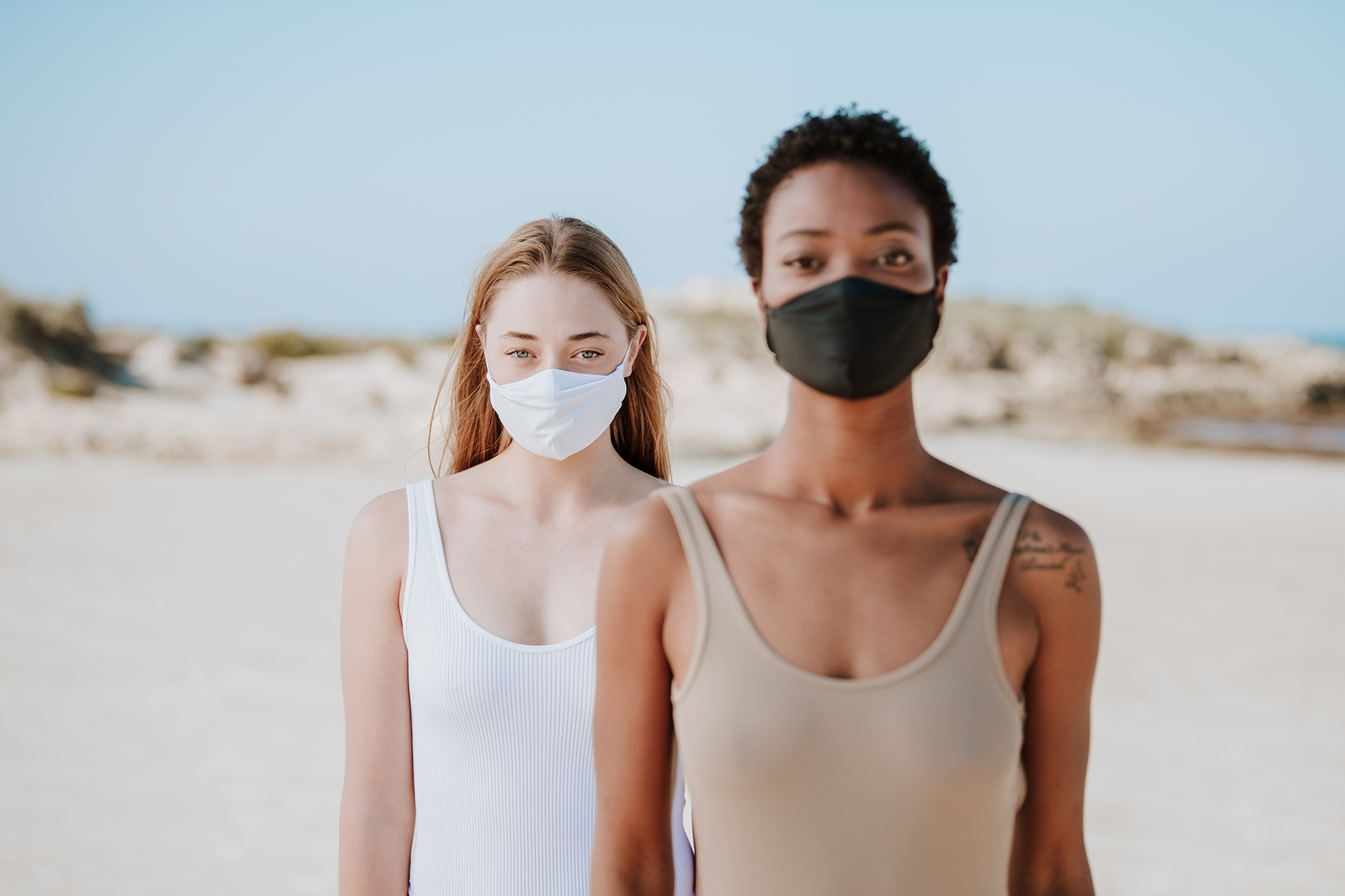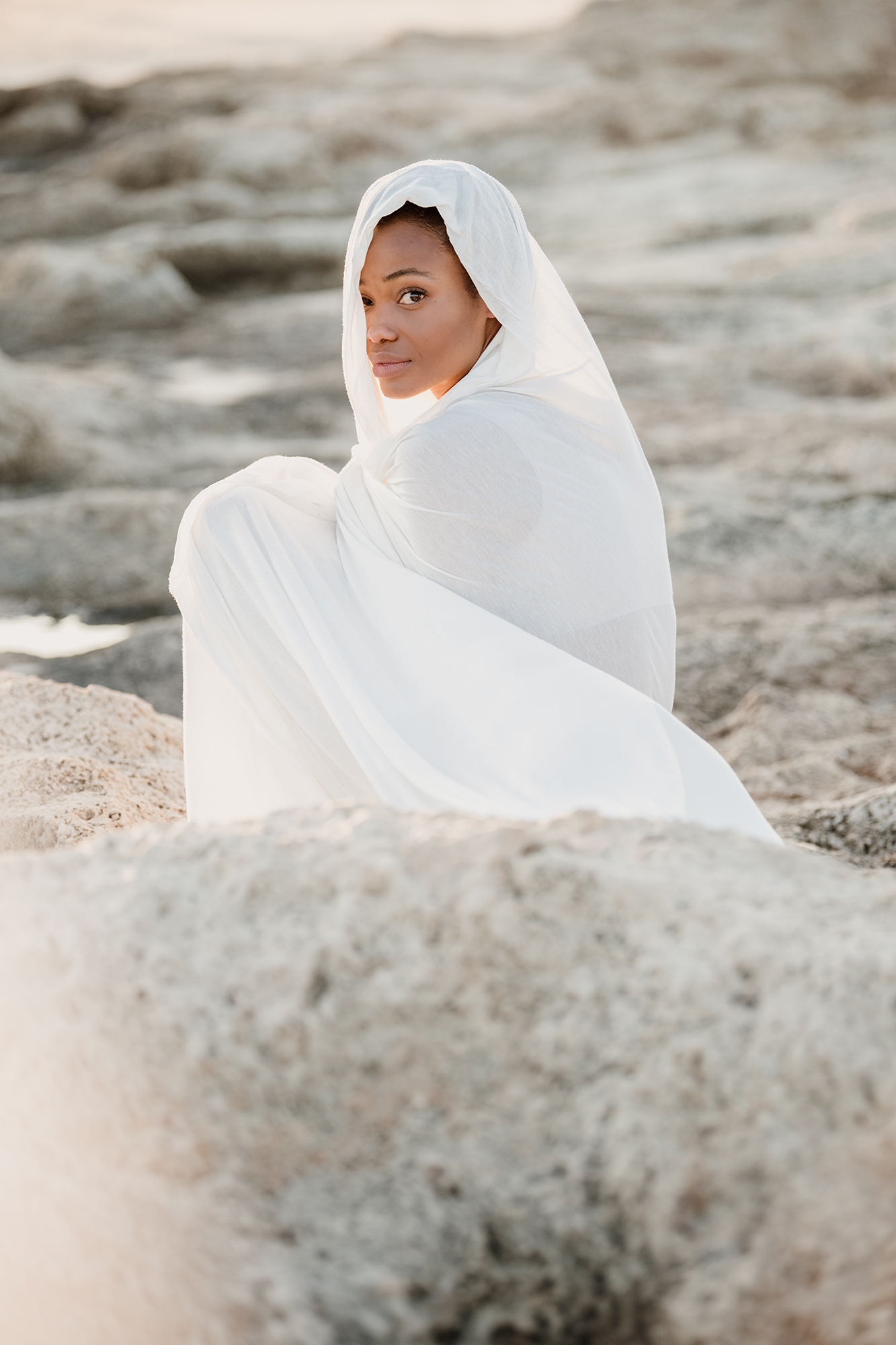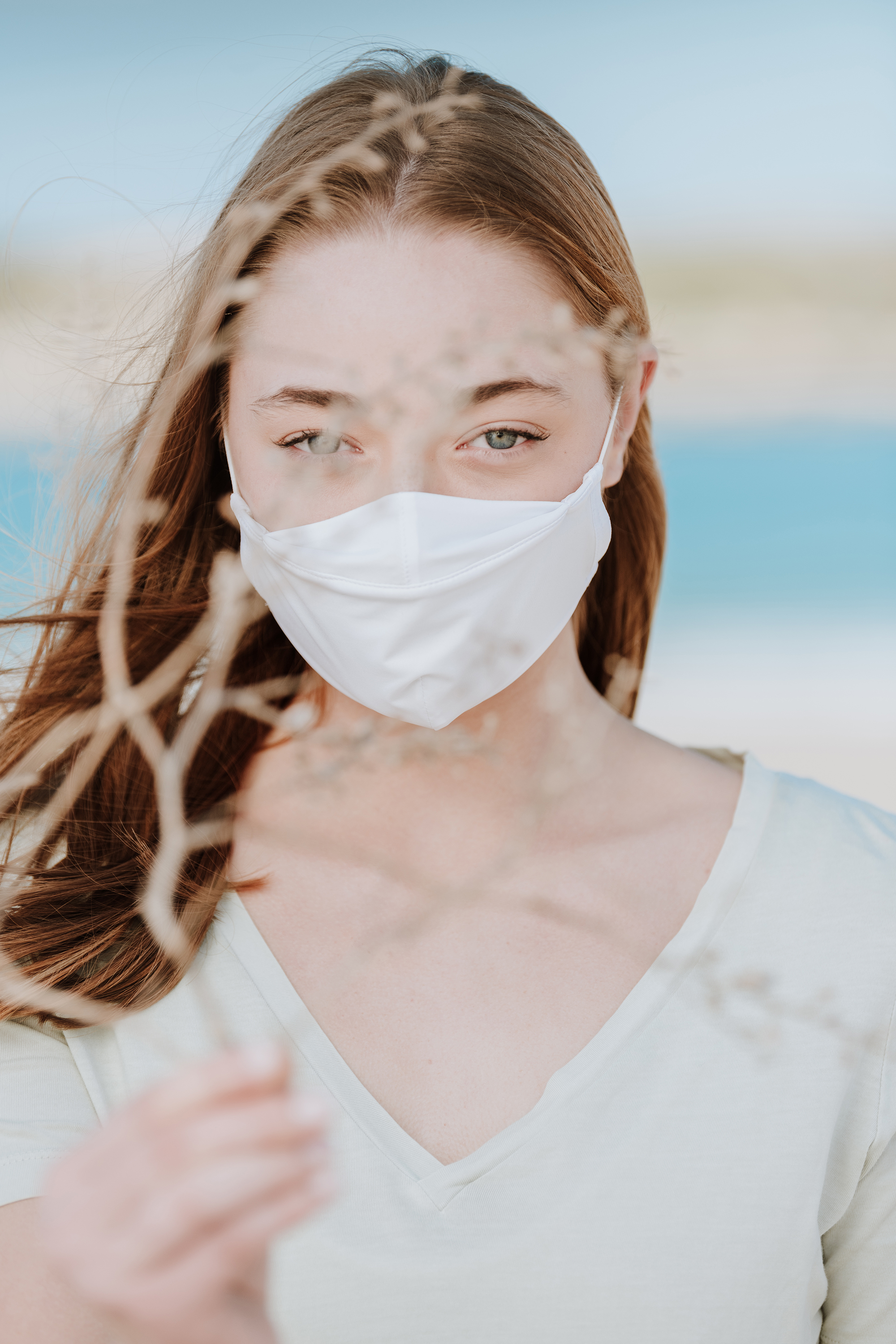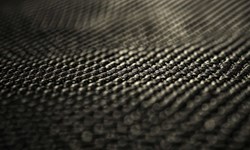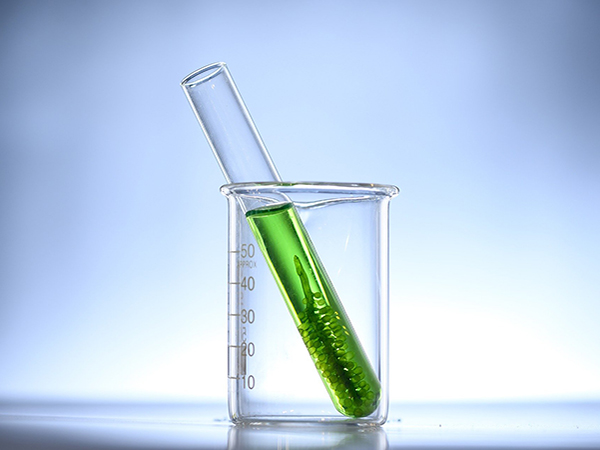
Algalife has developed a range of dyes and fibres from algae to create a positive impact on people and the planet. Co-founder and CEO, Renana Krebs, tells Fiona Haran about the company’s sustainable mission.
Renana Krebs has spent the last 15 years working as a senior fashion designer – both in the UK and Germany – and, during this time, she’s witnessed the true extent of how polluting this industry is. Such that, she decided to quit her high-profile role to launch her own business, Algalife, which is dedicated to sustainable textile solutions.
As the name suggests, the venture is driven by the aquatic plant algae, which according to the company, comes from a unique ecosystem and is rich in valuable substances. From studying these benefits in great depth, Algalife has developed a range of innovative natural pigments and fibres from algae that can be used in a wide range of fabrics.
Krebs calls this a ‘triple good solution’ as the resulting products are not only good for the body, but also the industry and the planet.
The importance of this hit home while Krebs spent time in the Far East, where she could see first-hand the chemical-polluted rivers resulting from textile production.
“I realised that I couldn’t be part of this any longer,” she says. “Once we change the material, we immediately change lives because workers are no longer at risk to chemical exposure.”
Through Algalife, Krebs and her team are therefore calling for a fairer and more transparent way forward. “When I see a garment, I see the hands of the people who make my clothes,” says Krebs. “So for me, it’s to understand the process. I want people to ask questions as, like people wanting to know what’s on their dinner plate, I want them to know what they are wearing; I want to know who made my clothes and how it’s affected their lives.”
The company has recently launched its new brand Algaeing, a verb used to describe its ‘proactive approach towards a better future’. “With Algaeing, it’s being at the core of sustainable production,” says Krebs. “For us, it’s a never-ending process, it is always evolving towards sustainable solutions.”
Green roots
Krebs founded Algalife with her father, Dr Oded Krebs, a biologist, botanist and ‘agri-tech pioneer’ with over 40 years of experience in the biology field, providing consultancy and planning in R&D. And, as she explains, his influence and the environment she grew up in fuelled a passion for nature.
“I grew up in an agricultural village in the centre of Israel, so I had a love for the land and everything it produces,” says Krebs. “This is my background and I tried to bring it into my current world as a designer. I was responsible for four collection areas. Each collection was between 80 and 100 pieces – each piece was between one to three million copies. For me, it was like, you cannot save until you see it. I realised that there are people behind these numbers, there are faces which we do not see.”
Highlighting some of the harsh realities of the textile & apparel industry that compelled her to act, Krebs says that “20% of global freshwater pollution is caused by the textile dyeing process” and that “10% of the chemicals in our clothing transfer to our skin and body”.
“We decided to create a game-changing fabric that not only changes the fashion industry but is positive for the environment,” she says. “At the end of the day, we believe that a fabric needs to be the green engine of our future.”
Algae supply
To source its raw material, Algalife has collaborated with one of the biggest algae suppliers in the world, ensuring that it has the facilities to scale up its production.
“You can find algae all over but we don’t source it from the ocean as we don’t want to harm the ecosystem, and you cannot achieve a solution that is scalable,” says Krebs.
The beauty of algae lies in its incredibly fast growth, powered by solar energy. And, through the company’s patented algae-based formulation, it is creating both dyes and fibres with zero waste.
“We have the benefit of one formulation to create two products,” says Krebs. “We can dye on all types of fabrics and we have already created a second generation of fibres which already contain the colour of the algae, eliminating the entire dyeing steps of the products. This is something that is disruptive in all the aspects you can think of.”
Boosting the profile
Within a short space of time, Algalife has built a lot of traction due to the niche nature of the business as well as media exposure, which Krebs describes as a ‘game-changer’. “Forty to 50 emails came from some of the top brands in the world which helped us to accelerate what we are doing,” she says.
The company also applied for several industry competitions, scooping a string of accolades including the 2017 Creative Business Cup, Vision Award, and Global Change Award, to name just a few. Krebs considers this recognition a great form of validation, providing a stage to showcase the start-up’s true potential.
It also highlights the value of teamwork, with everyone in Algalife’s multidisciplinary team hailing from various industries – from textiles and civil engineering, to biology and microchemistry. “This was the only way for us to create a revolutionary product,” explains Krebs. “We also have partners from all parts of the supply chain to understand the supply chain from within, not only from the outside.”
To gain a true understanding of the market it was entering, Krebs says that the company ploughed its initial grant into R&D, to gather the first proof-of-concept (POC). “Some time has passed and we’re really happy to have an amazing family of investors who believe in what we are doing,” she notes. Krebs says that further collaboration and curiosity will enable the industry to ‘bridge the gap’ between start-ups and brands and manufacturers.
“There is a different language [between the two],” she says. “We must therefore create bridges between the academic work and the needs of the industry. Because we have a drop-in solution, we’re finding ways to build these bridges. It’s something I’m very active on, not only with Algalife but in general.”
Algalife has already started scaling its algae formulation with partners, having carried out the necessary testing, with promising feedback. And besides its pigment and fibre products, Krebs reveals that the company has developed a ‘triple good’ face mask featuring a middle filtration layer made of algae, which is expected to launch next month.
As the company rolls out its Algaeing brand, it is now inviting fabric manufacturers and customers to be part of its movement, with Krebs insistent that collaboration is the key to real change.
“The change is not only coming from the supply chain, but also from the consumers and the government,” she says. “We cannot be part of the problem, we must be part of the solution, and it’s always about working together.
“The future of fashion is powered by algae – this is what we believe in.”
To learn more about Algalife, visit www.algaeing.com
Have your say. Join the conversation and follow us on LinkedIn


